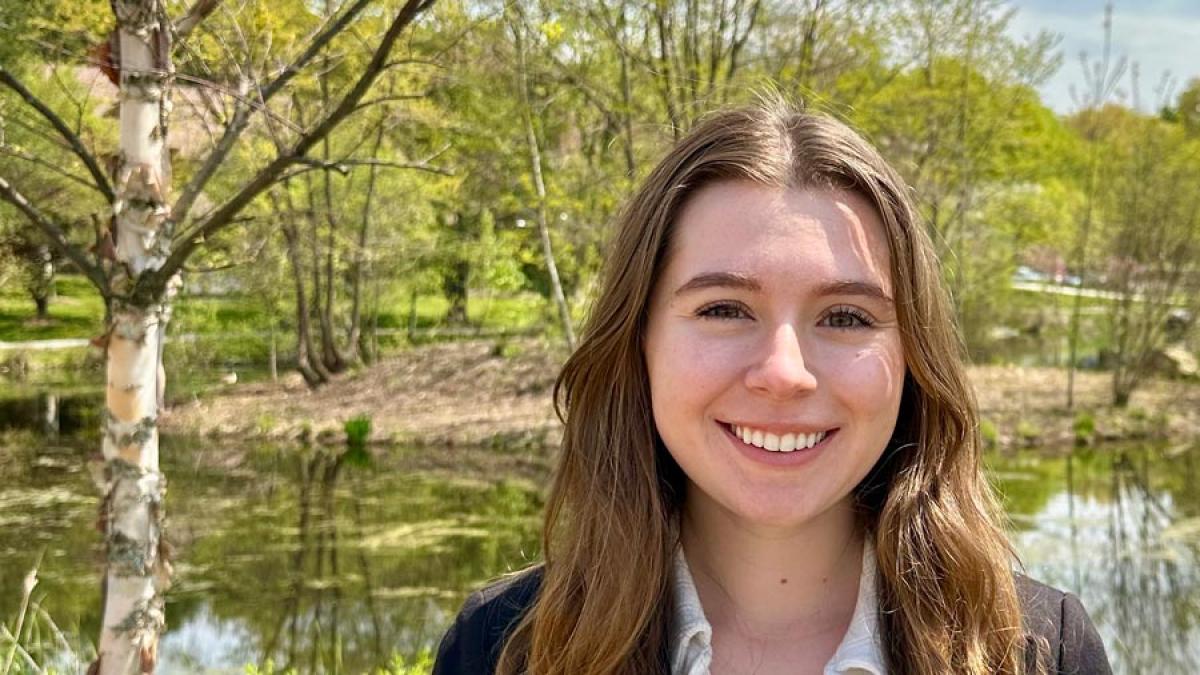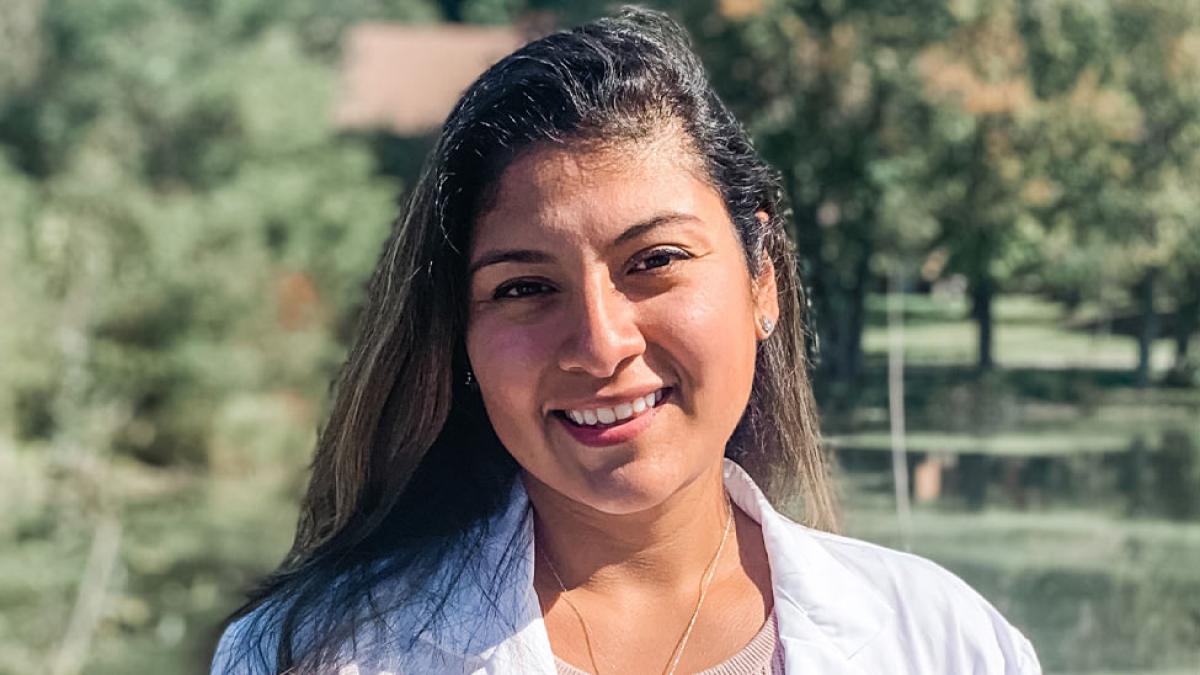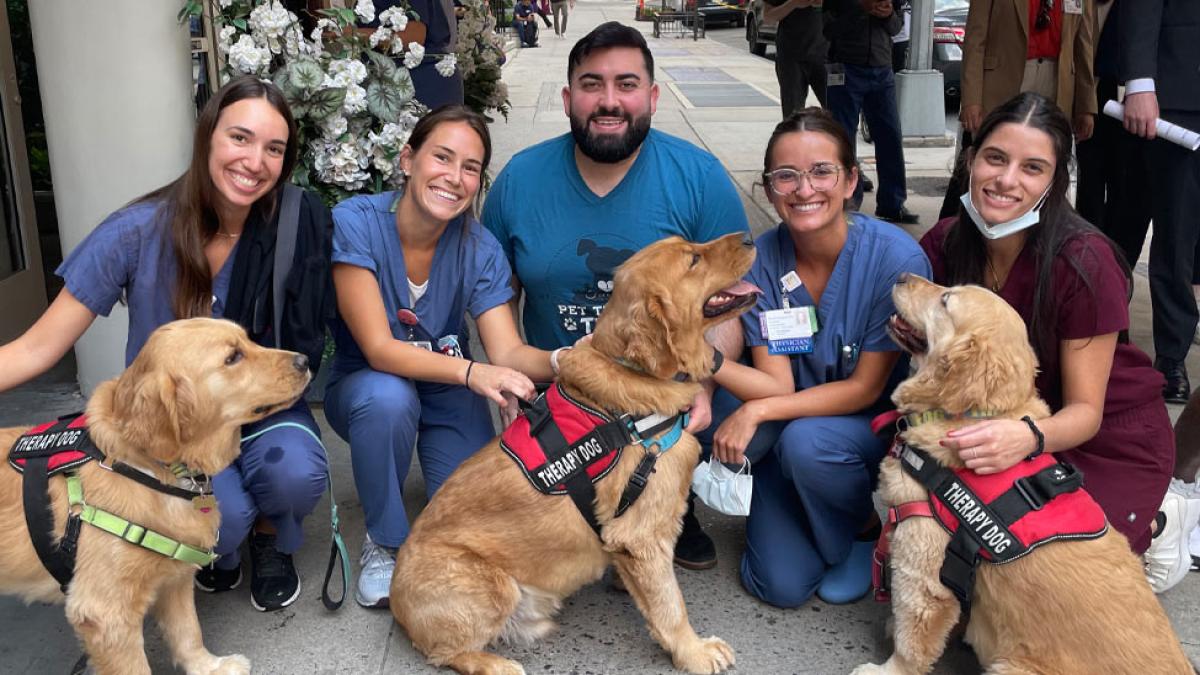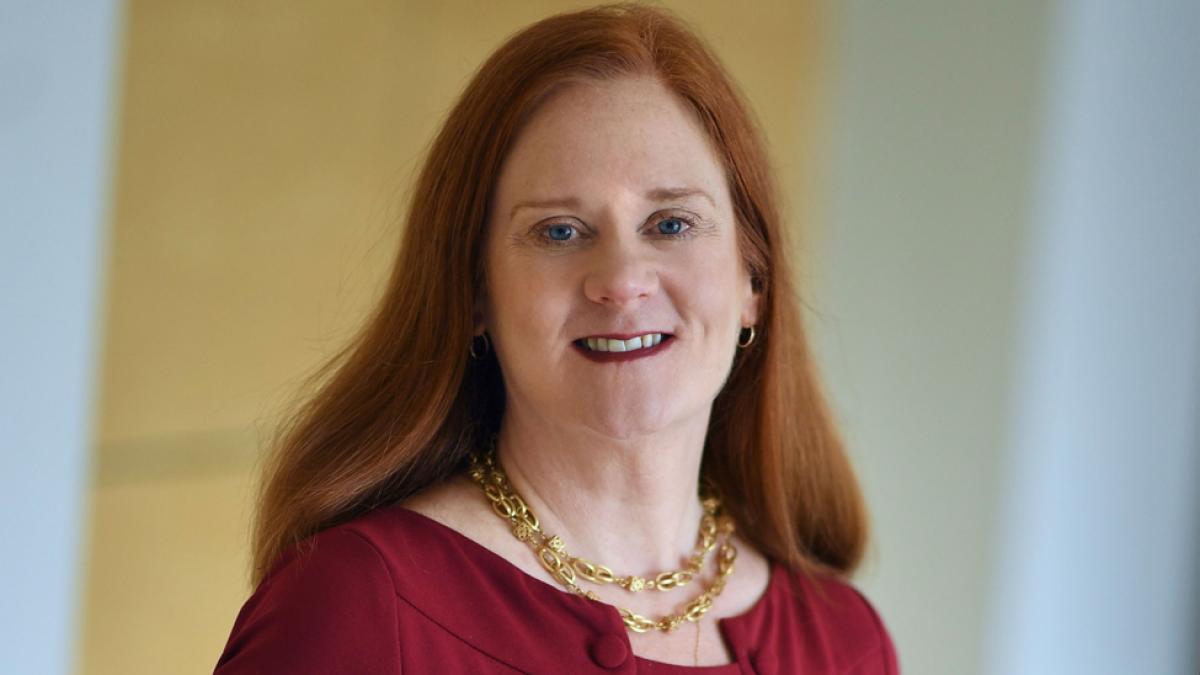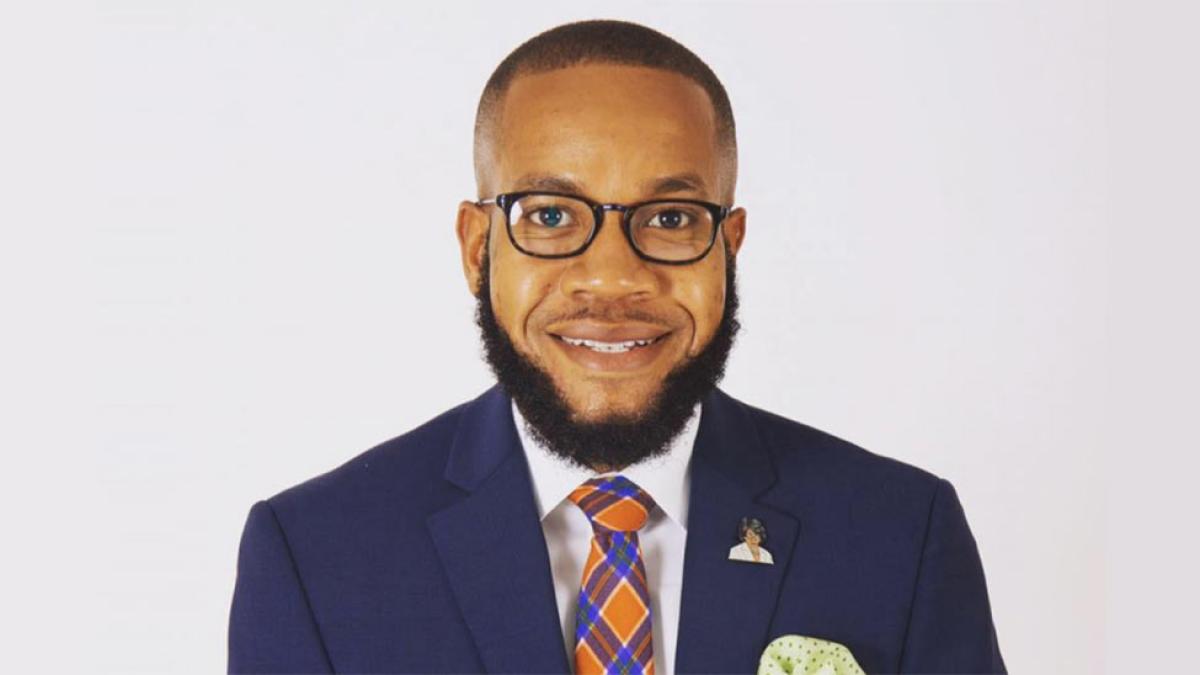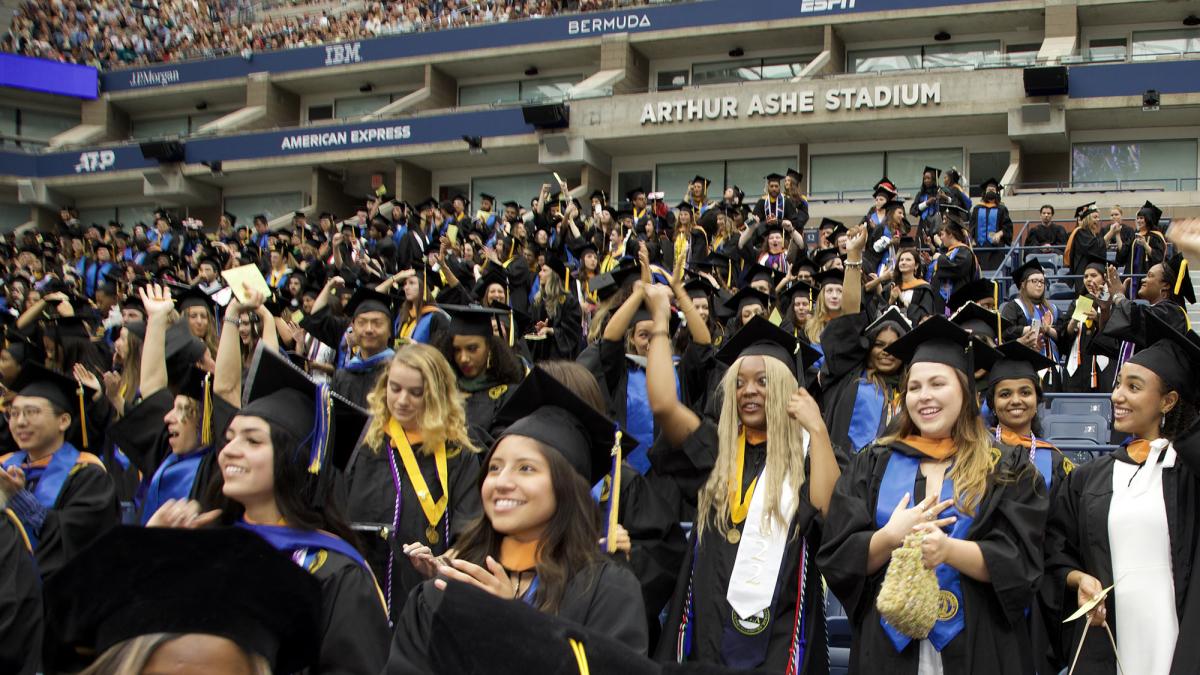
WNBC-NY (NBC) — News 4 New York at 5:30
Pace University held its first in-person graduation in three years inviting not just this year's, but those who missed out over the last two years because of the pandemic. While the day is cause for celebration, some used it to silently protest the city's mayor who was also invited to speak and the mayor fired back. Erica Byfield was there. : The bag pipe players got a warmer welcome than the mayor didn't do anything to improve his weak reception. the university's graduation, thing biggest ever expanded to Arthur Ash stadium to accommodate grads from 2020, 202 2021 and 2022. Yet for some this excitement of making it dampened by Adams' presence. This is a petition to keep him out failed to the grad caps doubled as poster boards. I think Eric Adams speaking today is incredibly tone deaf. i don't think he represents pace's values. Adams style after accepting an honorary degree, he addressed controversy. The words of the one of our great flossers, stopped from the bottom, now I’m here. about two dozen grads stood and turned their backs.
WNBC-NY (NBC) — Today in New York
Mayor Adams delivers the commencement address at Pace University. The reaction from some graduates. Adams as he was delivering his commencement address. the graduates of Pace University. This was yesterday. They say they are against his stance on issues like law enforcement and homelessness. The mayor urged them to do more than just protest. That means that you stand up to the over proliferation of guns in our country when you see ten innocent people shot in buffalo merely because of their ethnicity. It means you stop allowing guns to carve highways of death through a community where innocent black and brown children are losing their lives. The mayor received an honorary degree from the university.
NYC Mayor Adams urges student protesters to do more; gets honorary degree
Adams, who received an honorary doctorate from Pace University during the ceremony, pushed back on the students'...
Mayor Eric Adams to Pace Students: To Change the World, You Must Protest and Protect
- Read more about Mayor Eric Adams to Pace Students: To Change the World, You Must Protest and Protect
Standing before thousands of graduates at Pace University’s Commencement, Mayor Eric Adams today praised the uniqueness of the American Dream and said that in order for it to be realized, people must not only shine a light on injustices facing society, but they must then take action to protect the afflicted and those who are suffering.
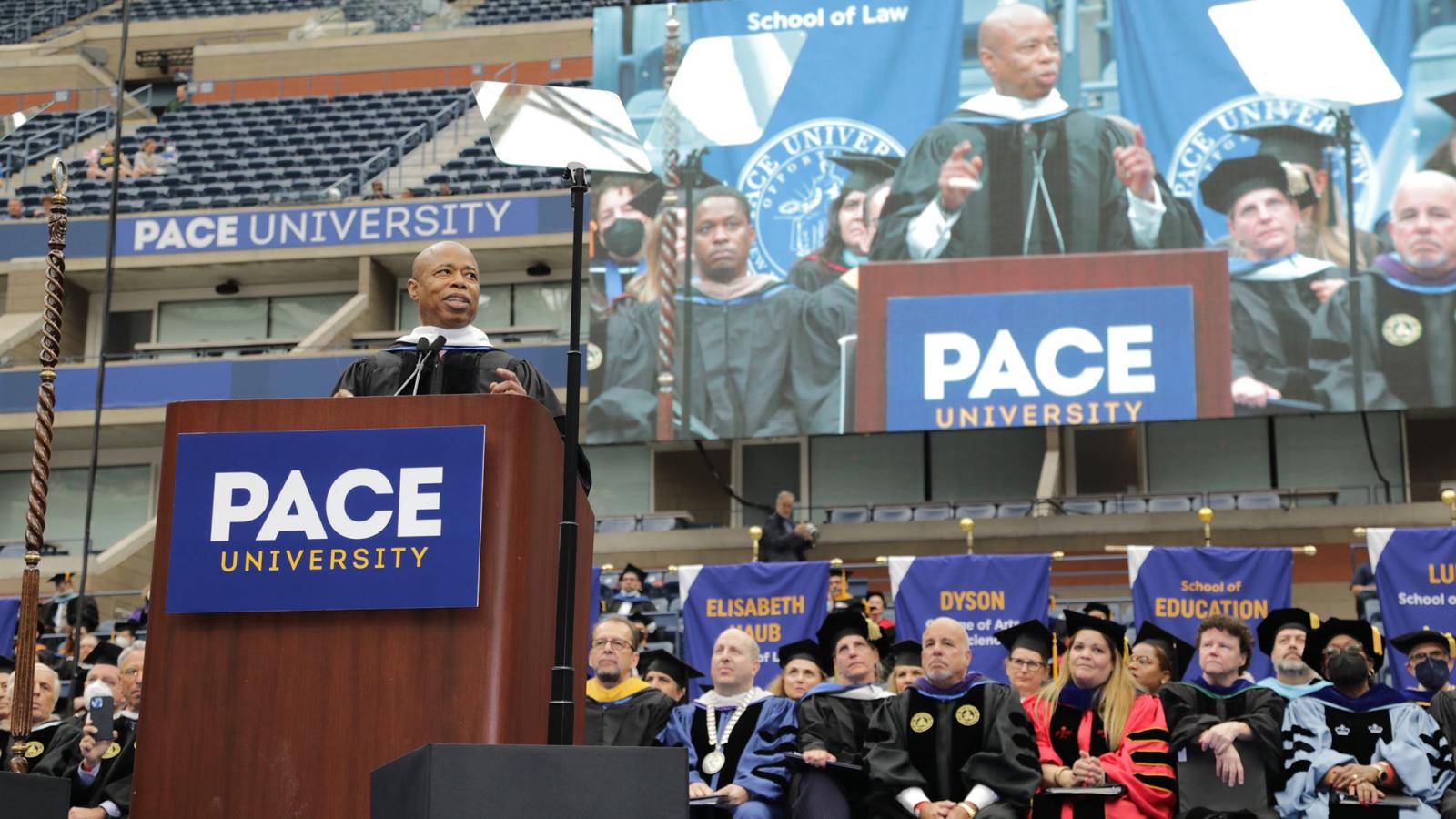
NEW YORK (May 16, 2022) – Standing before thousands of graduates at Pace University’s Commencement, Mayor Eric Adams today praised the uniqueness of the American Dream and said that in order for it to be realized, people must not only shine a light on injustices facing society, but they must then take action to protect the afflicted and those who are suffering.
Speaking to roughly 15,000 people – including 3,500 graduates, 2,800 from the Class of 2022 -- at USTA Billie Jean King National Tennis Center in Queens the mayor listed a series of protests he was involved in over decades and said whether it is an issue with gun violence, homelessness, or other societal injustices, people must fight for what they think is right.
“Here is my message to graduates: Yes, protest. But then protect,” said Adams. “You are what the American Dream is all about … As long as you dream. As long as you fight for what is right, this country will be the country we want it to be.”
”All of us are imperfect,” he continued. “All of us are trying. All of us are fighting for the America we want.”
The ceremony marked the first time that Pace held a combined commencement for graduates from its campuses in New York City, Pleasantville and from its Elisabeth Haub School of Law in White Plains. Students from the Classes of 2020 and 2021, who were not able to have a traditional celebration due to pandemic-related restrictions, participated in what was the largest ceremony in the history of the University.
In addition to Mayor Adams receiving a Doctor of Humane Letters, honoris causa, degree during the main ceremony, Congresswoman Grace Meng received a Doctor of Laws, honoris causa, degree at the ceremony for the Elisabeth Haub School of Law. Baroness Ariane de Rothschild ‘88 MBA ‘90, also received a Doctor of Humane Letters degree, honoris causa, from the Lubin school of Business. Both Meng and de Rothschild addressed graduates at their respective ceremonies.
“Graduates, my message to you today is simple,” said Pace President Marvin Krislov. “I want you to remember that change is inevitable. Nothing is forever. As a 2020 graduate told me when she watched her final semester turn remote: tomorrow is not guaranteed.”
“This, I believe, is the biggest lesson of the past two years,” Krislov continued. “Who would have anticipated this pandemic? Who would have anticipated our political upheaval? Our powerful racial and social justice movement? War in Europe? But the very fact that nothing is forever is exactly what gives us hope for the future. Everything changes. Things will change. You can change things. You will change things. And that is what we have taught you at Pace. We have taught you about your field, but we have also taught you how to think. How to interact. How to be lifelong learners. How to be flexible. How to make positive change.”
Students celebrating this exciting achievement were a mix of undergraduate, graduate, law, and doctoral students, spanning a variety of disciplines and future careers, such as nurses and physician assistants, cybersecurity experts, lawyers, accountants, teachers, performers, and much more. After the main event, ceremonies took place throughout the day and across the USTA Billie Jean King National Tennis Center. A DJ entertained students and their families in a celebratory atmosphere.
During the main ceremony, Pace awarded members of the New York City and Westchester communities who exemplify the Pace motto of Opportunitas, or creating opportunities for people, with the Opportunitas in Action Award. Marco Damiani, CEO of AHRC NYC, the largest organization in New York dedicated to supporting people who are neurodiverse and helping them to lead full and equitable lives, was New York City’s honoree.
Joseph Kenner, CEO of Greyston, a pioneering organization that unlocks the power of human potential through Open Hiring—a process that is open to anyone who wants to work, without background checks, resumes, or interviews – was Westchester’s honoree. For over 40 years at its world-renowned Greyston Bakery in Yonkers —which makes the brownies included in Ben & Jerry’s products and packaged brownies for Whole Foods Market—Kenner’s organization has offered jobs to hundreds of people who otherwise faced obstacles to employment.
In her remarks to students, Victoria Rooney, a graduate of Dyson College of Arts and Sciences, noted the uniqueness of the past few years, and said regardless of which campus a student called home, Pace was one community where “nothing is impossible, and everything is achievable.”
“Even throughout a world-altering pandemic, we adapted and diligently zoomed our way through our studies, proving that we could persevere and conquer the unpredictable,” she said. “However, being students at Pace was not just about the hands-on learning and opportunities, it was also about the everlasting relationships and memories we made. These last four years have been filled with discovery, love, fun, and knowledge.”

About Pace University
Since 1906, Pace University has educated thinking professionals by providing high quality education for the professions on a firm base of liberal learning amid the advantages of the New York metropolitan area. A private university, Pace has campuses in New York City and Westchester County, New York, enrolling nearly 13,000 students in bachelor’s, master’s, and doctoral programs in its Dyson College of Arts and Sciences, Lubin School of Business, College of Health Professions, School of Education, the Elisabeth Haub School of Law, and Seidenberg School of Computer Science and Information Systems.
Pace U Student Exhibition on Equity, Inclusion, & Sustainability
Pace University will host, "At a Point of Change," an outdoor student photography exhibition, which will line the fence on Frankfort Street outside One Pace Plaza in Lower Manhattan. The exhibit is open to the public and will run for two months, beginning May 9, 2022.
Pace Premieres Tide to Table Documentary at Jacob Burns Film Center
Pace University's documentary film team – PaceDocs – last night premiered Tide to Table: The Remarkable Journey of Oysters at the Jacob Burns Film Center. More than 200 people turned out for the event, which was the first in-person premiere for the program since 2019, before the pandemic. The film continues a distinguished tradition of producing documentaries that shine a light on important environmental issues.
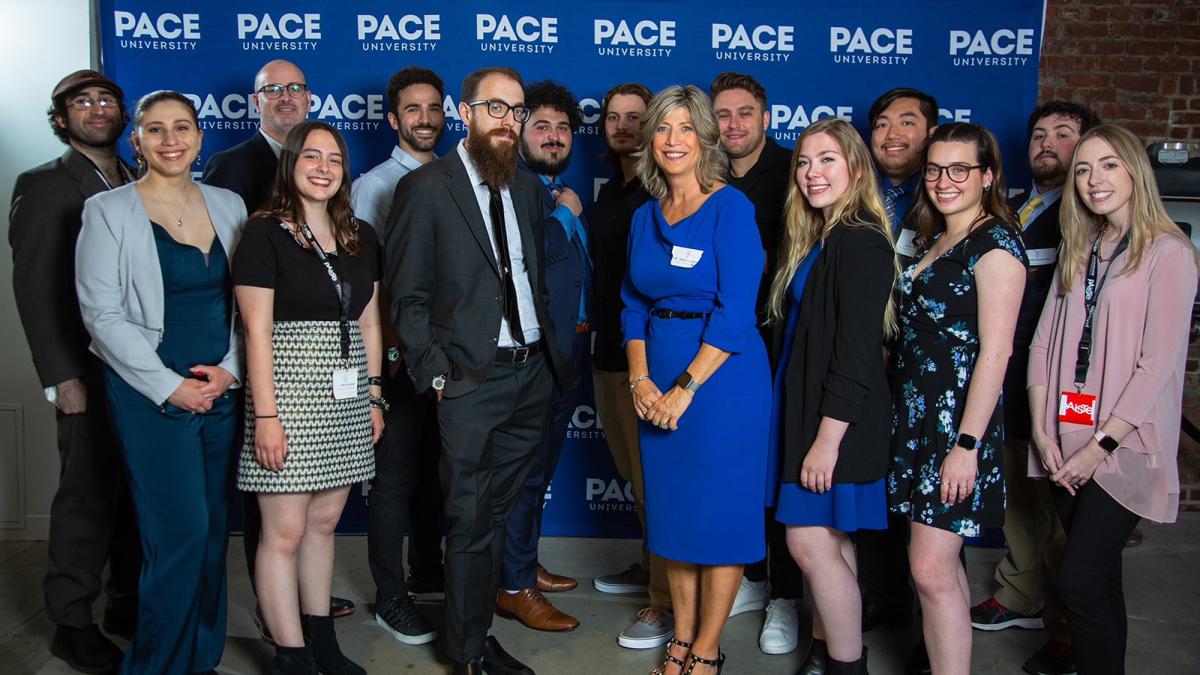
Vice President of the Class of 2022 is passionate about advocating for underrepresented patients
Throughout her time at Pace, Anonna Chowdhury, PA-S, has learned to always follow her instincts. She appreciates the fact that professors encourage students to think on the spot while providing the proper tools to succeed to treat patients efficiently and effectively. She noted, “During my rotations, I can finally understand how a student's small contribution can have a large, positive impact on a patient's well-being.”

Class of 2022 Vice President Anonna Chowdhury, PA-S, is passionate about advocating for patients who are underrepresented in medicine. Her goal is to bridge the gap and educate patients to better understand their next steps.

Anonna grew up in an underserved area in Queens, New York, with her immigrant parents. She noticed that whenever she would visit the doctor's office, her parents had difficulty understanding the doctor’s instructions. Once she started volunteering at hospitals in New York City, Anonna realized how physician assistants (PA) can make a difference in the medical community, which led her to focus her education on (PA) studies.
The College of Health Professions (CHP) prides itself on giving back to communities and teaching their students to do the same, which is one of the reasons Anonna was drawn to CHP’s PA program. “During my interview I saw how CHP emphasized medically underserved populations, whether it was learning in our classroom, setting up [fundraising] drives, or even rotating at some of the most underserved hospitals in our city. These are all principles that were important to me, so when it came to deciding where I wanted to further my education, CHP was an easy choice,” said Anonna.
"During my interview, I saw how CHP emphasized medically underserved populations..."
—Anonna Chowhury
Throughout her education at Pace, Anonna has learned to always follow her instincts. She appreciates the fact that professors encourage students to think on the spot while providing the proper tools to succeed to treat patients efficiently and effectively. She noted, “During my rotations, I can finally understand how a student's small contribution can have a large, positive impact on a patient's well-being.”
Anonna recently completed an elective experience in Neurosurgery at The Mount Sinai Hospital working with mentor and CHP alumna Leslie Schlachter, PA-C, clinical director and chief advanced practice provider (@BrainyLeslie). Through this experience, Anonna was able to see the vast roles PAs play in the hospital. She was able to observe patients in the clinic, act as the first assistant in the OR, and even while taking consults from every department in the hospital. Anonna credits Leslie for being an amazing mentor. “My experience with Leslie was better than I could have ever imagined. I remember going into the rotation feeling very nervous because I did not know much about neurosurgery. She guided and taught me everything I needed to know as she would explain with visuals and analogies,” said Anonna.

Leslie explained that this elective in neurosurgery at Mount Sinai offers an in-depth experience into the fast-paced specialty services that are offered to patients. She discussed how students like Anonna train with a variety of teams, including inpatient on-call and floor; outpatient brain and spine; cerebrovascular outpatient and interventional radiology teams. There were over twenty PA and nurse practitioner participants in her training. Through this experience Leslie praises Anonna for now having a complete understanding of all the niches in neurosurgery and how their team works together to manage high volume, complex neurosurgery patients. “Her flexibility and dynamic personality as well as her enthusiasm for learning allowed her to absorb everything that was offered to her. We would love to have her back as one of our full-time physician assistants,” said Leslie.
After graduating in December 2022, Anonna hopes to continue to work in a neurosurgery department that prioritizes advocating for medically underserved populations.
More from Pace
Alexa Slack’s resume speaks for herself—an exceptional GPA and a steadfast commitment to community service has enabled Alexa to graduate Pace intent on becoming a future leader in the public health space.
Peruvian and first-generation graduate Lauren Cordova, PA-S, ’22, is making a place at the table for herself and other students in underserved populations. She chose the Physician Assistant (PA) Pleasantville program in the College of Health Professions (CHP) because of the emphasis on cultural sensitivity, community service, and diversity and that it teaches the importance of representation in healthcare.
Nothing describes a #Go-Getter better then Pace University’s College of Health Professions (CHP) Lenox Hill Hospital Physician Assistant Program (PA-NYC) graduates.
Daring to Dream: A First Generation Student Gives Back
A first-generation American, and the first in her family to go to college and law school, Maria Profeta '22 always had the goal to use her education to better her family and her community.
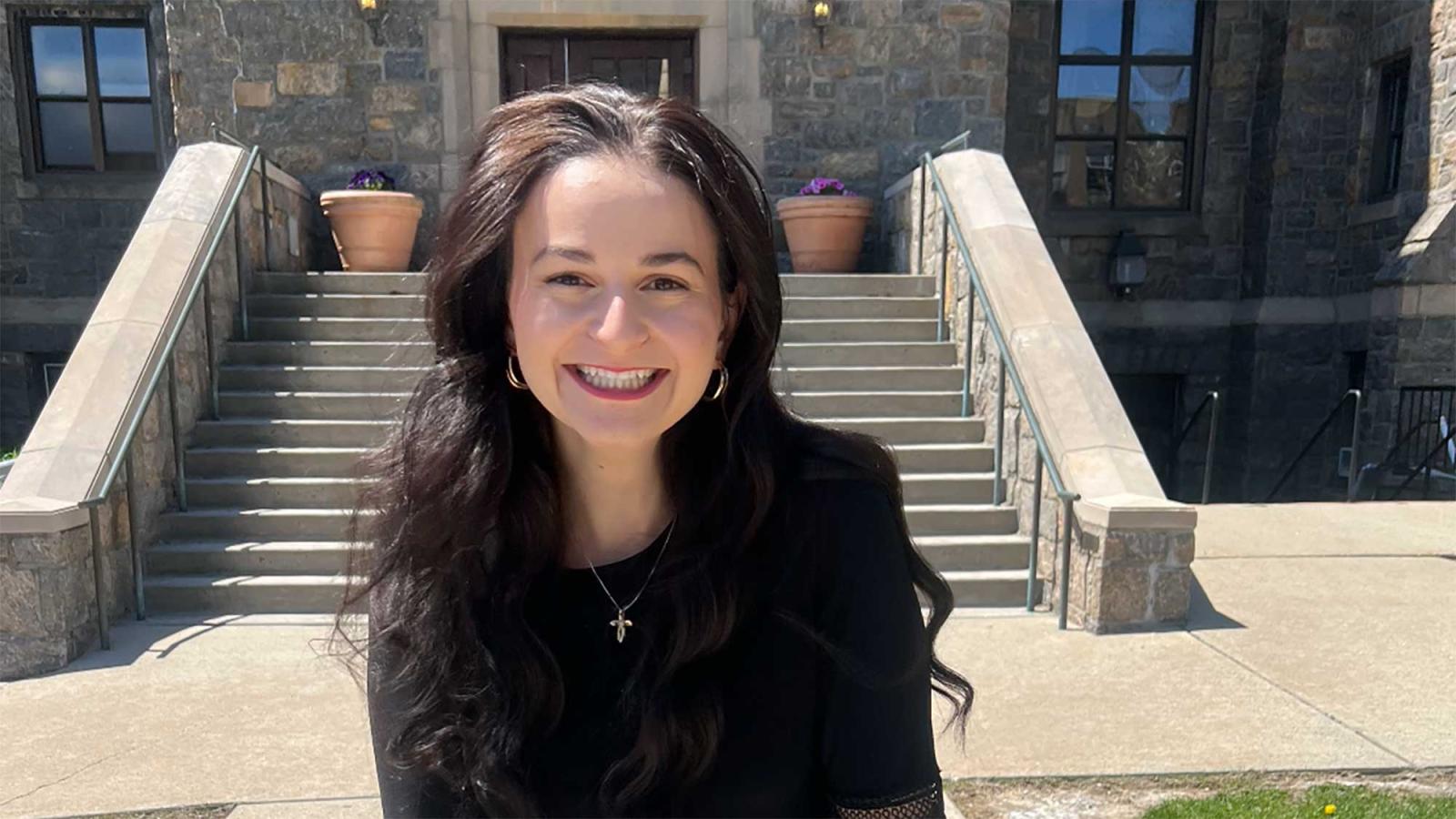
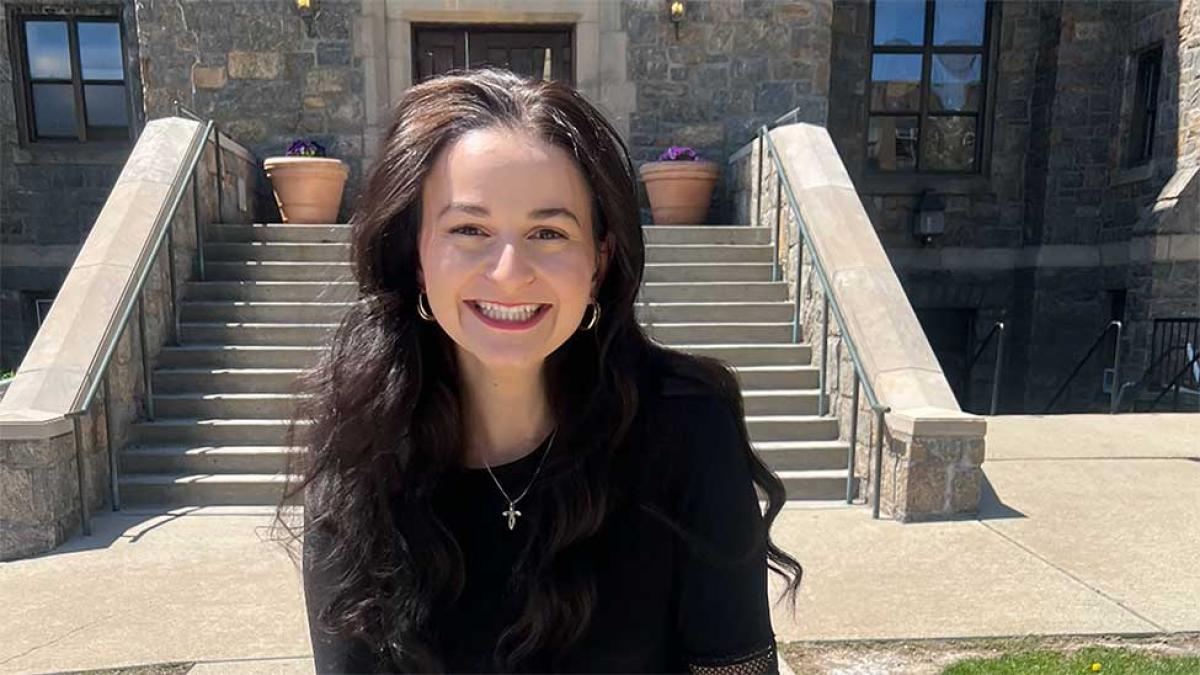
A first-generation American, and the first in her family to go to college and law school, Maria Profeta '22 always had the goal to use her education to better her family and her community. Once she decided that law school was the means to that end goal and public interest work would be her focus, she knew that Haub Law was the place for her. Now a 3L, with her journey at Haub Law nearly complete, Maria shares with us her experience as a law student during the pandemic, the mentors she gained, the experiences she values, and what’s next for her.
What are your post-graduation career goals?
I have accepted a position as an Assistant District Attorney with the Manhattan DA’s office to begin post-graduation (after taking the bar of course!).
What brought you to law school?
I graduated from the Elliott School of International Affairs at The George Washington University with a BA in International Affairs concentrating in Security Policy. My goal has always been to use my education to better my family and community. I have always been interested in public service and using my degree to help a greater number of people. At times, I thought being a lawyer was a far-fetched dream, but I knew if I had the opportunity to enter into this field I would stop at nothing to make that dream a reality. Haub Law’s glowing public interest credentials, coupled with its strong roots in the local community, made coming to school here a no brainer.
What opportunities have you participated in as a student at Haub Law?
I have completed two internships with the US DOJ’s Drug Enforcement Administration (DEA), as well as interned for the NYS Department of Education, and the US Attorney’s Office for the Southern District of NY (SDNY). These internships have all been valuable experiences in different ways. I have also had the opportunity to dip my toe into all Haub Law has to offer by participating in the advocacy program, serving as a Vice Chair of NELMCC as well as Chair of the Honor Board, and helping students as Articles Group Editor of Pace International Law Review and as a Dean’s Scholar. Being a Dean’s Scholar for Constitutional Law, Criminal Procedure, Torts, and Contracts was a very impactful experience for me. There is nothing I enjoyed more than meeting the incoming 1Ls each year and helping them navigate their law school journey. These experiences easily translated into my penchant to help others. I would be remiss to forget to mention one of the best rewards of attending Haub Law and being a Dean’s Scholar has been the lasting impact on fellow students I had the pleasure to help along the way, as well as strong friendship bonds that grew from serving the student body as a Dean’s Scholar. Many of my Dean’s Scholar “students” are now Dean’s Scholars themselves and some of my closest friends.
How has the pandemic changed your experience at Pace?
COVID struck during the second semester of my first year, so completing a large portion of my law school career virtually has created some challenges, ones that I know I share in common with the rest of my fellow students. However, I’m grateful to Haub Law for providing a tight-knit community where I could reach out to my peers and professors for help during the beginning stages of the pandemic and beyond. If anything, it made my roots at Haub Law, with my professors, and with my friends even stronger.
Which professors have made an impact on you during your time as a student?
I’ve been fortunate enough to build long-lasting relationships with professors and staff members who have become mentors. This long list of incredible people includes Dean Angie D’Agostino, Dean Jill Gross, and Professors Bennett Gershman and Perry Carbone. I owe a big thank you to Professor and Dean Emerita Michelle Simon, who really took me under her wing for the past three years as her TA, Dean’s Scholar, and research assistant– three experiences that have undoubtedly shaped my law school career and future as a lawyer. I am grateful to have them all as role models and attribute much of my current and future success to their mentorship.
What are some of your hobbies outside of law school?
I love to garden and cook– especially for those I love. I’m a self-proclaimed tea aficionado. I love music and I play the piano and violin. Both hobbies I hope to get back into after studying for the bar! I also love to travel and spent time before the pandemic solo traveling through Europe, Australia, and the United Arab Emirates. I’m really looking forward to more adventures in the coming years! I also speak Italian and have a rescue cat named Mildred.
What is your advice for future law students?
Write down your goals, keep them somewhere you can see them every day, and always keep those goals in mind when things get difficult. Also, being a law student is one part of your identity - don’t forget about your family, friends, and other aspects about yourself that make You, You. Lastly, never forget about where you come from and those who helped you get to where you are today.
Seidenberg student Deye Sarr wins Google women of color in tech scholarship
Seidenberg computer science student Deye Sarr (BS in Computer Science ‘22) is one of 20 recipients of the brand new Scholly and Google collaborative scholarship for women of color in tech.


Seidenberg computer science student Deye Sarr (BS in Computer Science ‘22) is one of 20 recipients of the brand new Scholly and Google collaborative scholarship for women of color in tech.
“It feels amazing to have won this scholarship because it made me feel like there were people out there who believe in me and my future just as much as I do,” Deye said. “It makes me feel valued and hopeful for what's to come in my academic and professional career.”
The scholarship was created after leaders at Google, Peta-Gay Clarke and Shameeka Emanuel, noticed a large drop in the number of women of color taking and completing computing degrees. They decided to partner with software company Scholly, Inc to sponsor a new scholarship program supporting women of color to pursue higher education in tech fields.
In April 2022, Pace University student Deye Sarr was announced one of the winners of the $10,000 scholarship. Her picture was published amongst 19 other winners, all of whom were chosen anonymously, on the scholarship website.
The scholarship, which opened applications to Black, Latina, and Native women, was created to put a spotlight on the gender gap in tech, which is still shows women as underrepresented in technology at just 33% of the workforce - a figure that is much higher than previous years, but shows danger of stalling, according to Deloitte.
Peta-Gay Clarke, who also serves on the Board of Trustees at Pace, was thrilled when she found out that a student from her alma mater had won. “As an alumna of the Seidenberg School, I was so delighted to see that a fellow Pace student was a recipient. It really warmed my heart to read all of the essays and Deye Sarr was truly deserving of this scholarship. I look forward to seeing all that Deye will accomplish after graduation.”
The scholarship will provide financial support to Deye as she enters her last semester at Pace in Fall 2022. Speaking about the future, Deye says: “My plans for the future are to graduate from Pace with my Bachelor's in Computer Science after this upcoming fall semester and to continue to explore the ways that my passions of technology, music, and 3D modeling and animation intersect. I'm hoping to eventually create initiatives that will help create more opportunities for women in all three fields! For now, I'm just focused on finishing out this semester on a strong note.”
Since it’s finals season, we wish you the best of luck, Deye! And we can’t wait to see how you follow your passion for art and technology in the future!
Pace University Premieres Tide to Table Documentary at Jacob Burns Film Center
Pace University’s documentary film team – PaceDocs – last night premiered Tide to Table: The Remarkable Journey of Oysters at the Jacob Burns Film Center.
More than 200 people turned out for the event, which was the first in-person premiere for the program since 2019, before the pandemic. The film continues a distinguished tradition of producing documentaries that shine a light on important environmental issues.
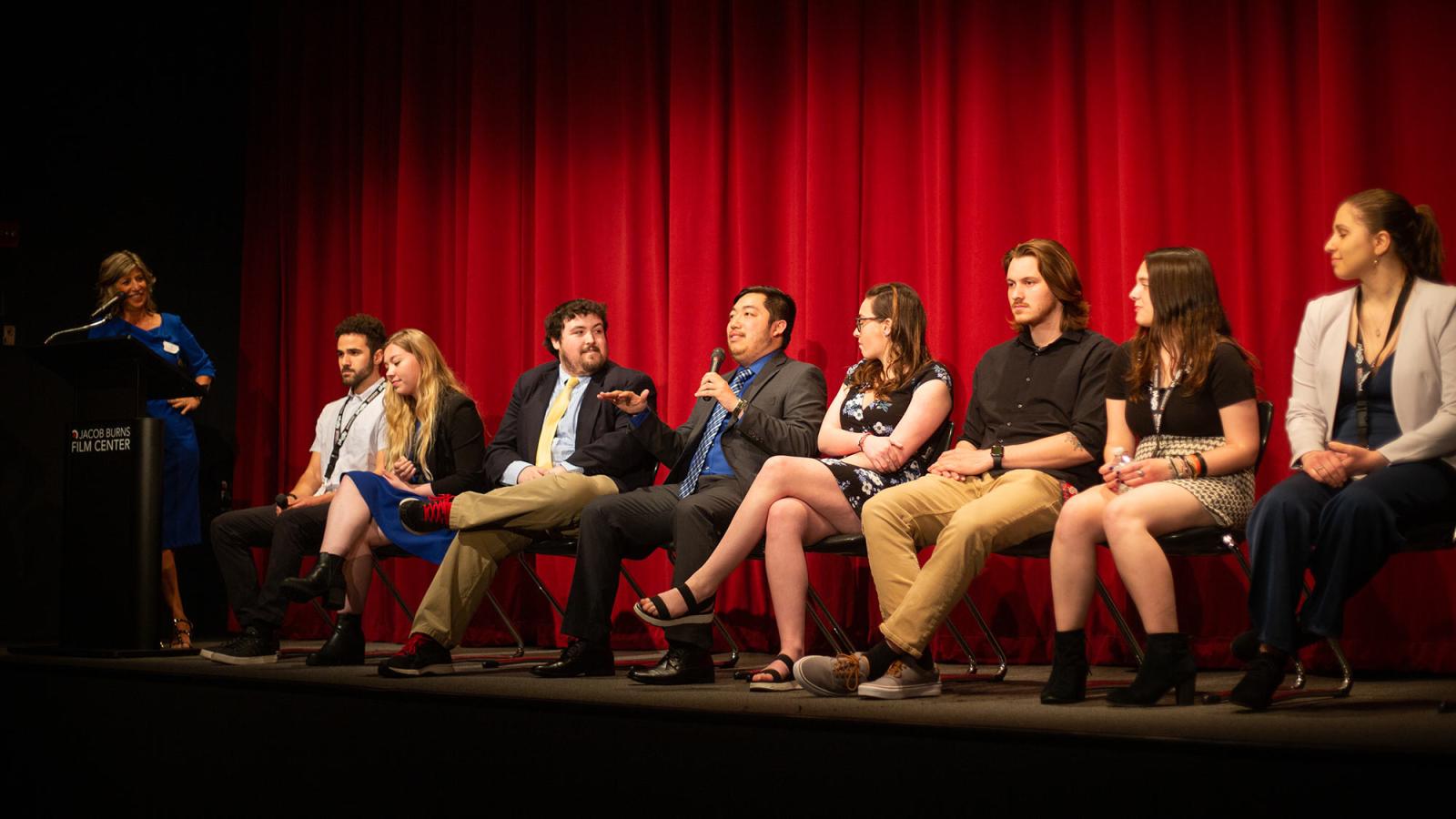
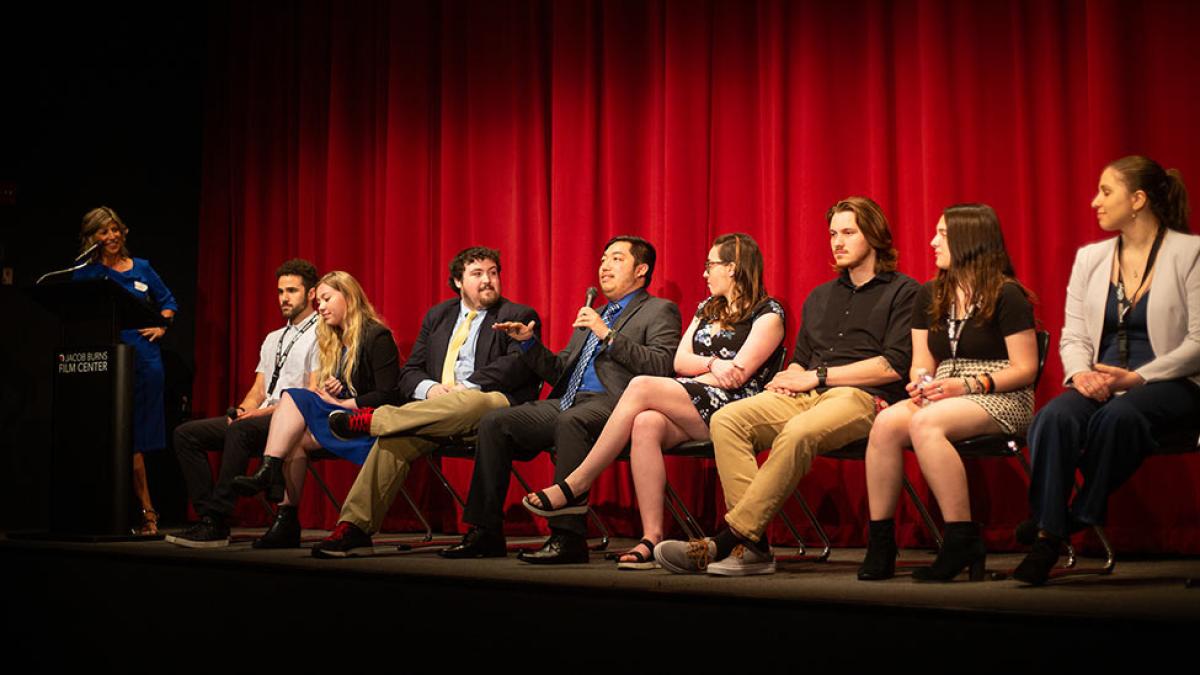
The PaceDocs Team focuses its film on the remarkable journey of oysters, their farmers, and their role in cleaning the water Announces Three Additional Showings throughout Cape Cod in June
Pace University’s documentary film team – PaceDocs – last night premiered Tide to Table: The Remarkable Journey of Oysters at the Jacob Burns Film Center.
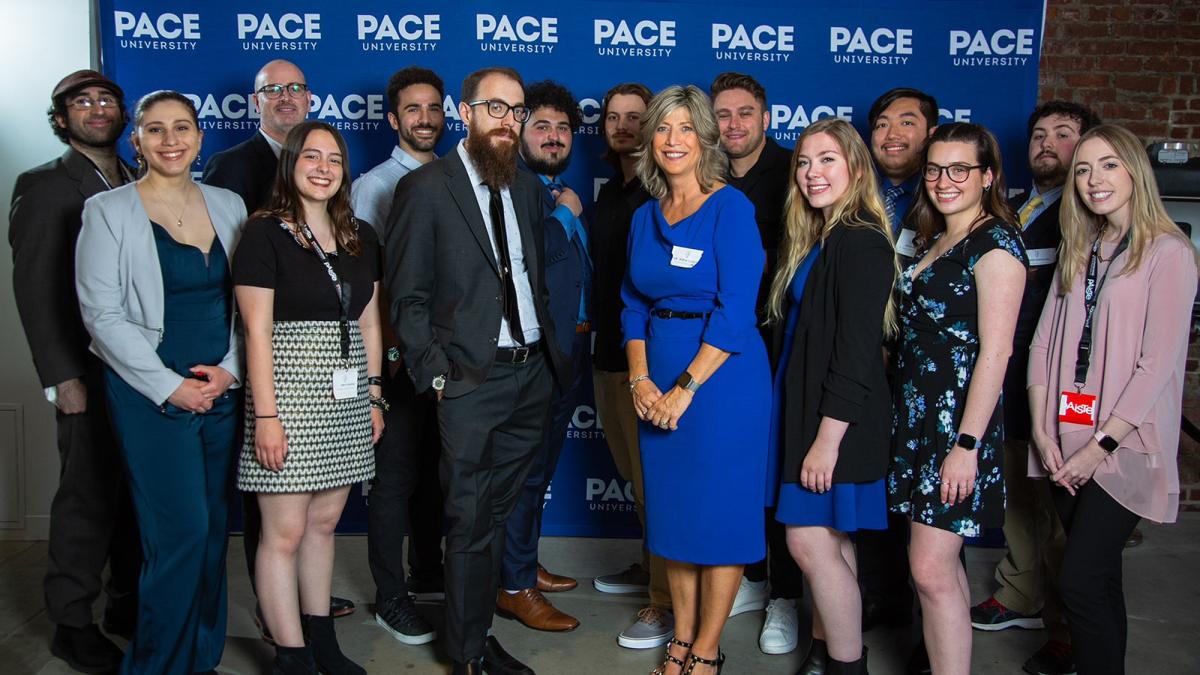
More than 200 people turned out for the event, which was the first in-person premiere for the program since 2019, before the pandemic. The film continues a distinguished tradition of producing documentaries that shine a light on important environmental issues.
Tide to Table documents how oysters rely on the ebb and flow of the tide for flavor. One oyster can filter up to 50 gallons of water per day; their survival is determined by their farmers, deeply rooted in their tradition and connection to the sea. The documentary, filmed on-location across the flats of Cape Cod, the shores of Connecticut’s Long Island Sound, and the urban waterways of New York City, features scientists, historians, shellfish constables, and farmers. It explores the serendipitous relationship between nature, oyster farmers, modern aquaculture technology, and a movement to better understand their ecological value, while showing how oysters are thriving in areas such as Cape Cod and being restored in once depleted regions such as Connecticut and New York City as a means of improving water quality.
“The PaceDocs team, under the leadership of Professor Maria Luskay, has once again produced an extraordinary, meaningful, and professional film,” said Marvin Krislov, president of Pace University. “ ‘Tide to Table’ is another great example of the hands-on experience and valuable environmental lessons that Pace students receive when they take this course. I marvel at the consistent excellence and talent in this program and am incredibly impressed by this group of budding filmmakers.”
The documentary is produced by Professors Luskay and Lou Guarneri. The popular class, ‘Producing the Documentary,’ is part of the Dyson College of Arts and Sciences at Pace University’s highly regarded film program that requires students complete a full-length environmentally themed documentary within 14 weeks. During the process, they learn teamwork, problem-solving, research, and organization, along with technical skills such as lighting, sound, camera work, interviewing, and other real-life lessons necessary to complete a film.
“It’s gratifying to be filming with students on location and sharing this experience with them once again,” said Professor Luskay. “Throughout it all, we brought together a diverse group of students with a full schedule of work. In the process, we not only learned first-hand about the plight of the oyster farmer braving the elements, but also the grit and determination required to complete the film on a tight deadline. It was an incredibly rewarding experience for us.”
In welcoming attendees, Professor Luskay also announced that the documentary will play at three venues across Cape Cod in June, marking the first time in the history of the program that it would be played in theaters beyond JBFC.
The Cape Cod showings are scheduled as follows:
- Tuesday, June 7, 2022 at 7:00 p.m.: Wellfleet Preservation Hall, Wellfleet, MA.
- Thursday, June 16, 2022 at 7:00 p.m.: Chatham Orpheum, Chatham, MA.
- Wednesday, June 22, 2022 at 7:00 p.m. : Cape Cinema, Dennis, MA.
Students, a mix of graduate and undergraduate students who answered questions from the audience after the showing, marveled at what it was like to work on and produce a professional-caliber film.
“One of the great things about this course is that it was the first time in my life where I’ve done consecutives days, even weeks, in a real film environment,” said Diego Mallens, a junior cinema and filmmaking major from Miami, Fla. “It was interesting to learn about the topic, and it was great to learn from professionals. Within days of meeting the team members, we bonded over a common goal and produced a film we can all be proud of.”
“This was great hands-on experience,” said Nicole Manning, a digital cinema and filmmaking major from New Fairfield, Conn. who is exploring careers in film and television production. “This is the most practical and productive class you can take because you have to think like a professional and apply skills you’ve learned in class. This was a great experience and something I’m putting on my resume and showing potential employers.”
In recent years, Pace filmmakers have produced documentaries around the globe focusing on a number of topics, including the importance of bees as pollinators in our food supply (2021); the impact of earthquakes in Hawaii (2019); the endurance of the people of Puerto Rico in the aftermath of Hurricane Maria (2018); Cuba at a cultural crossroads (2016); reviving Curacao’s coral reefs (2015); as well as many other poignant films.
“Dyson College’s student filmmakers have produced another moving documentary that delves into an important ecological issue,” said Tresmaine R. Grimes, dean, Dyson College of Arts and Sciences and School of Education. “The students learn and perfect their craft while educating us all. I am so moved by the talents of this team and the compelling film they have made. Congratulations to them and Professors Luskay and Guarneri for another impressive PaceDocs production.”
About Pace University
Pace University has a proud history of preparing its diverse student body for a lifetime of professional success as a result of its unique program that combines rigorous academics and real-world experiences. Pace is ranked the #1 private, four-year college in the nation for upward economic mobility by Harvard University’s Opportunity Insights, evidence of the transformative education the University provides. From its beginnings as an accounting school in 1906, Pace has grown to three campuses, enrolling 13,000 students in bachelor’s, master’s, and doctoral programs in more than 150 majors and programs, across a range of disciplines: arts, sciences, business, health care, technology, law, education, and more. The university also has one of the most competitive performing arts programs in the country. Pace has a signature, newly renovated campus in New York City, located in the heart of vibrant Lower Manhattan, next to Wall Street and City Hall, and two campuses in Westchester County, New York: a 200-acre picturesque Pleasantville Campus and the Elisabeth Haub School of Law in White Plains. Follow us on Twitter or on the Pace News website.
About Dyson College of Arts and Sciences
Pace University’s liberal arts college, Dyson College, offers more than 50 programs, spanning the arts and humanities, natural sciences, social sciences, and pre-professional programs (including pre-medicine, pre-veterinary, and pre-law), as well as many courses that fulfill core curriculum requirements. The College offers access to numerous opportunities for internships, cooperative education and other hands-on learning experiences that complement in-class learning in preparing graduates for career and graduate/professional education choices.
